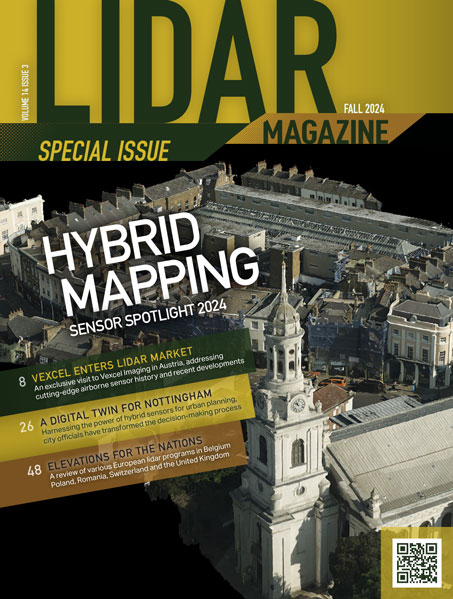Facial Prostheses, Custom Implants and Surgical Guides Show Design Precision with Geomagic Freeform and Geomagic Studio Software; Workshop Provides Hands-On Experience
MORRISVILLE, N.C. October 25, 2012 Geomagic, a global company providing 3D technology for digital reality, is showcasing innovative, digitally designed facial prostheses, implants and surgical guides at this weeks International Congress on Maxillofacial Rehabilitation in Baltimore, Md. Made by Geomagic customers, these medical designs are used to rebuild and restore the facial features of cancer, tumor and trauma patients. At this annual meeting, Geomagics exhibit will feature real 3D models from a variety of patient cases. Additionally, a workshop will illustrate digital design workflows for custom implants and prostheses that restore disease- or injury-impacted areas of the anatomy.
Geomagic Freeform and Geomagic Studio deliver precision design and 3D processing capabilities, allowing researchers and doctors to easily convert scan data into usable 3D models. Geomagics toolset also includes intuitive, flexible sculpture tools to quickly design perfect custom-fit prostheses and implants for better patient treatment and repair.
A workshop titled Craniofacial Reconstruction: Scan, Plan and Manufacture, being held at the event on October 29, 2012, will offer hands-on experience with the Geomagic Freeform Plusmodeling system, a Geomagic product widely used in prosthetic and implant design and manufacture.
The advances made possible by using the right software in the digital workflow are astonishing, and they eliminate patient discomfort while enabling better fit and aesthetic results, said Dr. Dominic Eggbeer, Research Officer at Cardiff Metropolitan University and member of the Centre for Applied Reconstructive Technologies in Surgery (CARTIS) in Wales. Geomagic Freeform has become the centerpiece of our process because it lets us sculpt our designs into the perfect fit and appearance, and it lets us work faster without needing the patient to be present, added Eggbeer, whose patient work will be showcased at the event.
Geomagic Studio has the easiest and most accurate tools for registering models, said Nancy Hairston, president of MedCAD, a biomedical device manufacturer in Dallas Tx. Registration is pivotal when users merge multiple scan files of patient data. In seemingly difficult registrations, it finds the right topology between different pieces to register perfectly.
One particularly complex piece, a silicone partial facial prosthesis covering 30% of the patients face, was designed and produced by CARTIS and will be profiled in Geomagics booth, #3. In this particular case cancer treatment required the removal of the patients eye, orbital bone, and nose; at the same time, radiotherapy compromised the shape and depth of the remaining bone. Compounding this already-difficult challenge, the prosthesis also needed to match the patients wrinkles, skin texture and dimples, a task that typically defies the capabilities of conventional CAD software.
Using Geomagic Freeform, CARTIS eliminated two clinic visits and cut in half the time required from initial visit to final fitting. Instead of requiring the patient to endure three clinic visits including painful and messy fittings with silicone impression material, CARTIS was able to work from a 3D surface scan and CT scan data. CARTIS technicians then used Geomagic Freeform to view and analyze the anatomy in 3D space from multiple angles, obtaining a wounds-eye view of bony protrusions or concave areas, and noting damage that otherwise was hidden. The CARTIS team built up facial structures on the prosthesis to match the patients face and designed an area where a glass eye could be inserted.
Geomagic Freeform software also allowed subtle detailing of skin folds and textures along with ultra-thin 40-micron edges required to achieve a pressure fit. Once the design was finalized, CARTIS digitally designed the molds in Freeform. The finished silicon prosthesis was then color and texture matched for a natural look.
Through the Maxillofacial Unit at Morriston Hospital, were routinely delivering prosthetic ears, noses, orbital areas and implants for jaw or cranial replacement sections using scans and digital modeling in Geomagic Freeform so that the patient looks natural even down to the wrinkles, Dr. Eggbeer said.
Other restorations designed using Geomagic Freeform and/or Geomagic Studio will be on display at the ICMR event:
1) A surgical cutting guide, designed by MedCAD, used to cut fibula segments; these segments were then used in rebuilding a mandible.
2) The resultant reconstructed mandible with the segments described above.
3) A surgical guide for a mid-face fracture case which realigned displaced bones and helped place an orbital implant, designed by CARTIS.
4) A nasal prosthesis designed by CARTIS in Geomagic Freeform.
The examples showcased by our customers at this event provide a reminder that 3D software truly has the power to change lives, said Joan Lockhart, VP of Marketing, Geomagic. We applaud the work of organizations such as CARTIS, MedCAD and others for showing that 3D scanning and design solutions, and new additive fabrication technologies, can be used in transformative ways for the betterment of humanity. Im proud our solutions played a part in these remarkable examples.
See more about Geomagic software at: www.geomagic.com
About Geomagic
Geomagic (www.geomagic.com) is a global company dedicated to advancing and applying 3D technology for the benefit of humanity.
Different from CAD, Geomagic offers specific products to create 3D content from imaging the real world and real people, verify dimensional quality by comparing a master design to as-built products, and simulate touch sensations in digital environments.
Geomagic customers are the most innovative companies in industries ranging from aerospace, automotive, toys, mold, medical device, surgical simulation, consumer products, arts, heritage, research and education. Some of the leading companies around the globe using Geomagic products include Ford, BMW, Boeing, Harley Davidson, Timberland, Fisher Price, Lego, Pratt & Whitney, NASA, Schneider Electronic, 3M, Danaher and Invisalign. Geomagic is based in Research Triangle Park, NC, USA, with an office in Boston and subsidiaries in Europe and Asia, and partner channels worldwide.
###
Geomagic, Geomagic Studio, Geomagic Qualify, Geomagic Qualify Probe, Wrap, Geomagic Wrap, Phantom, OpenHaptics, Omni, Freeform, Claytools, Sensable and Sensable Technologies are trademarks or registered trademarks of Geomagic Inc. All other trademarks are the property of their respective owners.
